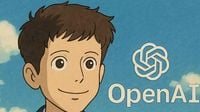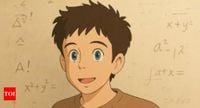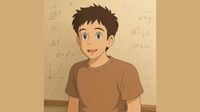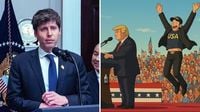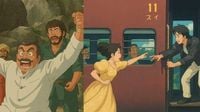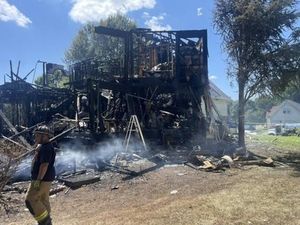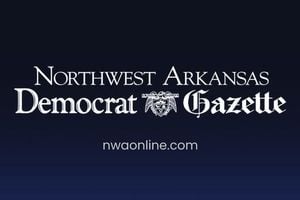OpenAI's ChatGPT image generator has soared in popularity, allowing users to create stunning visuals reminiscent of Studio Ghibli's unique animation style. However, this surge in demand has led to significant operational challenges for the AI company, prompting its CEO, Sam Altman, to issue a plea for moderation.
On March 25, 2025, OpenAI unveiled its new native image generator as part of the GPT-4o model, which enables users to transform text prompts into high-quality images. The feature quickly gained traction, with Altman describing the demand as "biblical". "I have never seen anything like it," he posted on X, the social media platform formerly known as Twitter, on March 30, 2025.
As excitement over the Ghibli-style images grew, so did the strain on OpenAI's resources. Altman noted that the company's GPUs—critical components for processing AI tasks—were "melting" under the pressure. To manage this overwhelming demand, OpenAI announced temporary rate limits, allowing free-tier users to generate only three images per day. "It’s super fun seeing people love images in ChatGPT. But our GPUs are melting. We are going to temporarily introduce some rate limits while we work on making it more efficient. Hopefully it won’t be long!" Altman stated in his post.
Since the launch of the image generator, users have created countless memes and artistic interpretations, showcasing the beloved animation style of Ghibli founder Hayao Miyazaki. This includes transforming personal photos into Ghibli-esque characters or scenes, which has delighted fans while raising ethical concerns about copyright infringement.
Amidst the enthusiasm, a fabricated warning letter allegedly from Studio Ghibli circulated online, claiming that applications providing such image generation services were violating copyright laws. The letter, which was quickly debunked, threatened legal action against those involved in generating Ghibli-style images. Studio Ghibli responded by clarifying, "We have not issued a warning letter," dispelling the rumors.
The controversy surrounding the use of AI to replicate artistic styles has sparked debates among both fans and critics. While many users enjoy the creative possibilities offered by the new feature, others express concern over the implications for artists and the integrity of creative works. Zelda Williams, daughter of the late comedian Robin Williams, voiced her disapproval on Instagram, stating, "People are gleefully sharing 'Studio Ghibli style' AI memes and photos, as though the man himself wouldn't absolutely despise the technological piracy and negative effects on our environment."
Hayao Miyazaki, who is known for his deep connection to traditional animation and storytelling, has previously expressed skepticism about AI's role in creative fields. In a 2016 interview, he stated, "I would never wish to incorporate this technology into my work at all. I strongly feel that this is an insult to life itself." His sentiments reflect a broader concern among artists about the potential for AI to undermine their livelihoods.
OpenAI's image generator operates in a legal gray area regarding copyright. According to intellectual property rights lawyer Evan Brown, while the "style" of an artwork is not explicitly protected by copyright, the methods used to train AI models could raise legal questions. "It's plausible that OpenAI achieved this likeness by training its model on millions of frames from Ghibli’s films," Brown noted. However, the legality of such training practices is still being debated in courts.
As the demand for AI-generated images continues to rise, OpenAI has committed to ensuring that its technology does not infringe on the rights of living artists. An OpenAI spokesperson confirmed that while ChatGPT does not replicate the styles of individual living artists, it is permitted to replicate broader studio styles.
The rapid adoption of the image generator has also led to a flurry of creative outputs from various users, including notable Bollywood studios. Dharma Productions and Maddock Films have joined the trend, sharing Ghibli-style posters of their films, further amplifying the cultural impact of this AI feature.
Despite the challenges, Altman remains optimistic about the future of OpenAI's technology. He stated, "We are gonna do the opposite of nerfing it BUT still please chill out a bit," emphasizing the company's commitment to innovation while addressing the practical limitations posed by the current demand.
As users continue to explore the boundaries of AI-generated art, the conversation about copyright, artistic integrity, and the role of technology in creative expression is likely to intensify. The excitement surrounding OpenAI's image generator showcases the potential for AI to revolutionize the creative landscape, but it also underscores the need for thoughtful consideration of the ethical implications involved.
In this rapidly evolving landscape, the intersection of technology and art will continue to challenge traditional notions of creativity, prompting ongoing discussions about the responsibilities of AI developers and the rights of artists in an increasingly digital world.
